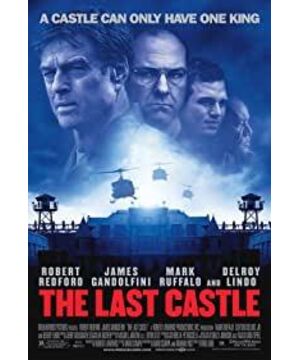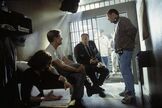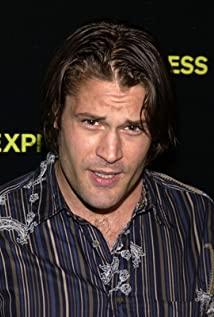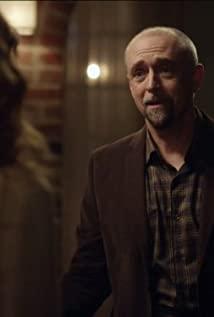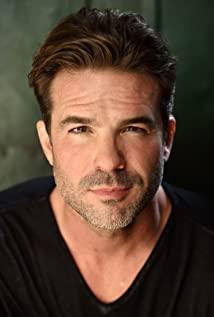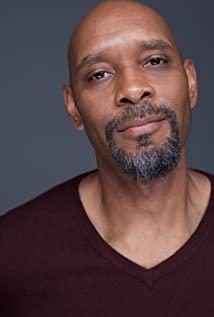I've seen it before, but I wasn't used to writing a short review after watching a movie. I saw it before and then forgot it. I watched it again two days ago, and thought to myself, how come there is no feeling at all for such a good movie? If so, why didn't you write something?
The movie can be divided into two parts, the first part is about the background and the mood is brewing, and the second part is the implementation of tactics to capture the prison.
Movies about prisons generally talk about escape. Dig tunnels, make keys, jump over walls and jump into the sea, pretend to be guards, create chaos and move tigers away from the mountains and so on. This movie is different. First, this is a prison dedicated to criminal soldiers; second, the purpose of occupying the prison is not to escape.
Even if the military uniform is torn off, the title is deprived, and the military status is also cancelled, but with previous military training, combat literacy, experience, etc., prisoners still maintain the spirit and etiquette that a soldier possesses. In this case, why not obey the prison management? Isn't the soldier's duty to obey orders? The so-called freezing three feet is not a day's cold, the warden is domineering, insidious and hypocritical, and instructs to indulge in the abuse of prisoners. These have turned out to be his excellent resume in managing prisons: there has not been a case of escape, no attack. Prison guards, there has been no riot.
Suppressed resentment will erupt one day, and the accumulated anger will one day find a release point. The physical and mental abuse of the prisoners accumulated day by day, and was finally angered while General Erwin was serving his sentence. The movie mainly describes one thing: Corporal Aquila was punished for a military salute, and later he was shot in the head by a rubber bullet for blocking a forklift and died.
The entire prison, whether it is a prisoner or a guard, even the warden is of military origin, so even if it cannot be maintained by the relationship between the superior and the subordinate in the army, the military spirit of the other party should still be respected, one of which is the military salute. In order to maintain the prestige of himself and the guards, the warden may not allow the prisoners to perform the military salute, and additionally punished Aquila who performed the military salute. This greatly suppressed the self-esteem of the soldiers and made Erwin and other soldiers very frustrated and annoyed. But before Irwin came, the prisoners had been silently enduring it. After Erwin arrived, he didn't want to resist at the beginning. He thought about serving his sentence honestly and going home for the elderly, not planning to engage in any riots in prison. I think his thinking has never changed. He just wants to make himself and the prisoners have dignity in prison and maintain the self-esteem of the soldiers. Military salute is one of maintaining self-esteem. Later, the warden punished Erwin again, punishing him to carry stones continuously. But when it was over, Irwin didn't think about what to do to resist. In the process of communicating with Irwin, Aquila not only understood that he must have self-esteem as a soldier, but also allowed him to gain the respect of his fellow prisoners. Because his father was a stonemason, Aquila quickly gained confidence with this knowledge when building walls in the prison. Since then, the logic is very smooth, which can also explain: why Aquila would not even want his own life, but also stand in front of the built wall to block the forklift, and even the guards who shot at him on the watchtower. Can't tell him to move half a step. This moment was not only a turning point for Aquila himself, but also a turning point for all the prisoners' emotions. In the movie, General Erwin asked the prisoners to throw a stone at the warden’s office with a trebuchet and said, "This is the one!" The warden looked at the burning stone, which was engraved with two lines. : "Aquila/U.S. Marine Corps". From this moment on, Warden Winter changed his calm and steady state of mind, released water tanks and helicopters, and finally got out of control and personally drew his gun and shot Erwin.
Warden Winter is a violent man with a knife in his smile. There are many collections from the war period in his room. Irwin said after seeing it for the first time: Only people who have never been on the battlefield will collect these items. The unintentional taunts instantly made Winter feel that his hot face was pressed against his cold ass. The first second he was respectful, and the next second he threw away the book he wanted to find Irwin's signature, but he didn't find it. Winter's narrow-mindedness is evident. However, Winter is still a high-end art appreciator. At the beginning of the movie, before learning that General Irwin is about to be sent to prison, Warden Winter listens to Salieri's music (Salleri is written on the record box). I just watched Mozart’s Biography a while ago, and got to know some Salieri for the first time. Salieri was originally a court musician with extraordinary accomplishments, and his contacts were all dignitaries, and his students included Beethoven Schubert and so on. Salieri in "Mozart" is a first-class music theory but mediocre creation. In the movie, Mozart was indirectly killed by Salieri's jealousy. But this is just the creation of the movie plot, not the historical truth. Perhaps what the director of "The Last Castle" wanted to express was that Warden Winter was a fake and high-quality villain, and she also predicted the final fate of General Erwin, just like Mozart in "Mo Biography".
At the end of the movie, I was thinking, is it possible to design another ending so that Irwin will not die? I don't know why, I always feel that if you don't shoot him to death, it won't have much influence on the evaluation of the whole movie. What Erwin wanted to express was told to the audience. What other interpretations were there in the final death? Make Warden Winter look more villainous? Make Erwin's image taller? Perhaps it is the essence of the tragedy, and I still need time for inspiration.
In addition, regarding the term "main melody". I just haha. If there is really any main theme, the main theme of China is not to let the military and the police discredit, the warden can make wrong decisions, but he must not be a bad person. Moreover, who often has the word "main melody" on their lips? For me, any melody can be used. It doesn't matter whether the main melody is the main or not, but whether the melody sounds good or not, whether the co-composer has any deep meaning and what he wants to express.
View more about The Last Castle reviews


